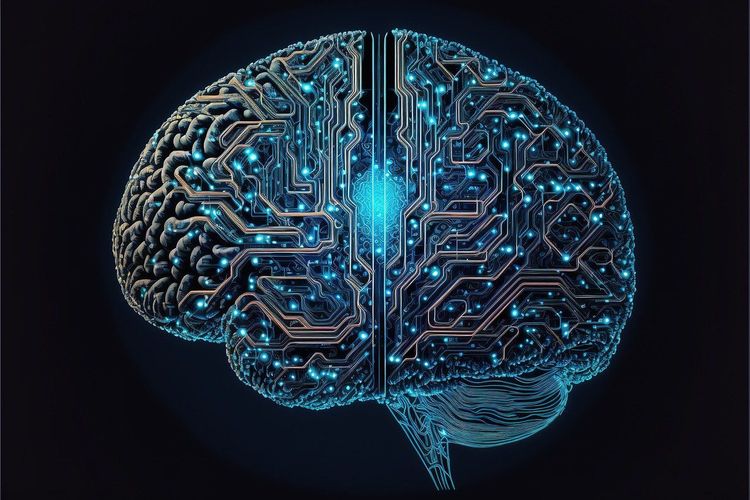On Friday, the European Union and the United States released a joint statement emphasizing their commitment to enhancing cooperation in artificial intelligence (AI). This agreement encompasses AI safety and governance, alongside broader collaboration on various technological issues, such as digital identity standards and promoting human rights on online platforms.
As we reported on Wednesday, this initiative emerged from the sixth—and potentially final—meeting of the EU-U.S. Trade and Technology Council (TTC). This forum has been active since 2021, aiming to mend transatlantic relations that were strained during the Trump administration.
Given the potential return of Donald Trump to the White House in the upcoming U.S. presidential elections, the future of EU-U.S. collaboration in AI and other strategic technology sectors remains uncertain. However, the current political landscape reflects a strong desire for closer alignment on technology issues. This joint statement serves as both a declaration of intent and an appeal to voters on both sides of the Atlantic to support a collaborative approach rather than divisive rhetoric.
AI Dialogue
Within the segment of the joint statement titled “Advancing Transatlantic Leadership on Critical and Emerging Technologies,” both parties reaffirm their commitment to a risk-based approach to AI, aiming to develop safe, secure, and reliable AI technologies.
The statement encourages advanced AI developers in the U.S. and Europe to adopt the Hiroshima Process International Code of Conduct for Organizations Developing Advanced AI Systems, which complements their respective governance frameworks. This code arose from last year’s G7 discussions focused on AI risk management.
A significant outcome of the sixth TTC meeting is a commitment between the EU and U.S. AI oversight bodies—the European AI Office and the U.S. AI Safety Institute—to establish a “Dialogue” aimed at enhancing collaboration. This dialogue will concentrate on facilitating the exchange of scientific information between both regions' AI research ecosystems.
“This cooperation will enhance the implementation of the Joint Roadmap on Evaluation and Measurement Tools for Trustworthy AI and Risk Management, critical for minimizing discrepancies in our evolving AI governance and regulatory frameworks, as well as fostering cooperation on international standards,” the statement indicates.
Additionally, the joint statement presents an updated list of key AI terms featuring mutually agreed definitions, which will play a crucial role in advancing AI standardization efforts.
A vital aspect of the EU-U.S. agreement focuses on collaborating on research that leverages machine learning for beneficial applications, such as improving healthcare, enhancing agriculture, and addressing climate change, all with a strong emphasis on sustainable development. A senior commission official noted this initiative aims to extend AI benefits to developing nations and the Global South.
“We are harnessing the potential of AI for sustainable development through collaborative research as part of the Administrative Arrangement on Artificial Intelligence, addressing global challenges for the public good,” the joint statement affirms. “Joint working groups comprised of U.S. scientific agencies and European Commission departments have made significant progress by defining crucial milestones in areas like extreme weather, energy, emergency response, and reconstruction.”
Moreover, a document outlining this collaboration on AI for public good was published on the same day. It reveals that multidisciplinary teams from the EU and U.S. have dedicated over 100 hours to scientific discussions over the past six months, focusing on advancing AI applications in ongoing projects.
“This collaboration is yielding positive results in areas related to energy optimization, emergency response, urban reconstruction, and climate forecasting,” it elaborates. “In the coming months, scientific experts from both regions will continue to deepen their collaboration and showcase innovative research globally, unlocking AI's potential to tackle global challenges.”
The statement reflects a desire to broaden collaboration by inviting more global partners into the initiative. “We will explore new opportunities with our partners in the United Kingdom, Canada, and Germany within the AI for Development Donor Partnership to expedite our foreign assistance efforts in Africa, supporting educators, entrepreneurs, and citizens in realizing AI's potential,” the EU and U.S. acknowledge.
On the topic of platform governance, where the EU is enforcing recently enacted comprehensive legislation—like the Digital Services Act (DSA) and the Digital Markets Act—both parties emphasized the need for Big Tech to prioritize “information integrity.”
Labeled as “a Pivotal Year for Democratic Resilience,” the joint statement underscores the critical nature of the coming year, given the number of elections worldwide. It warns of the threats posed by AI-generated misinformation and expresses concern over the misuse of AI applications, such as harmful ‘deepfakes,’ which may contribute to foreign information manipulation.
The statement highlights ongoing EU-U.S. collaboration in platform governance and calls for greater access to data for researchers, particularly for studying societal risks, as mandated by the EU's DSA for larger platforms.
Regarding digital identity, the statement mentions continued collaboration on standards, with future efforts aimed at identifying use cases for transatlantic interoperability to enable cross-border use of digital identities and wallets.
Additional cooperation areas outlined in the statement include clean energy, quantum technology, and 6G advancements.







